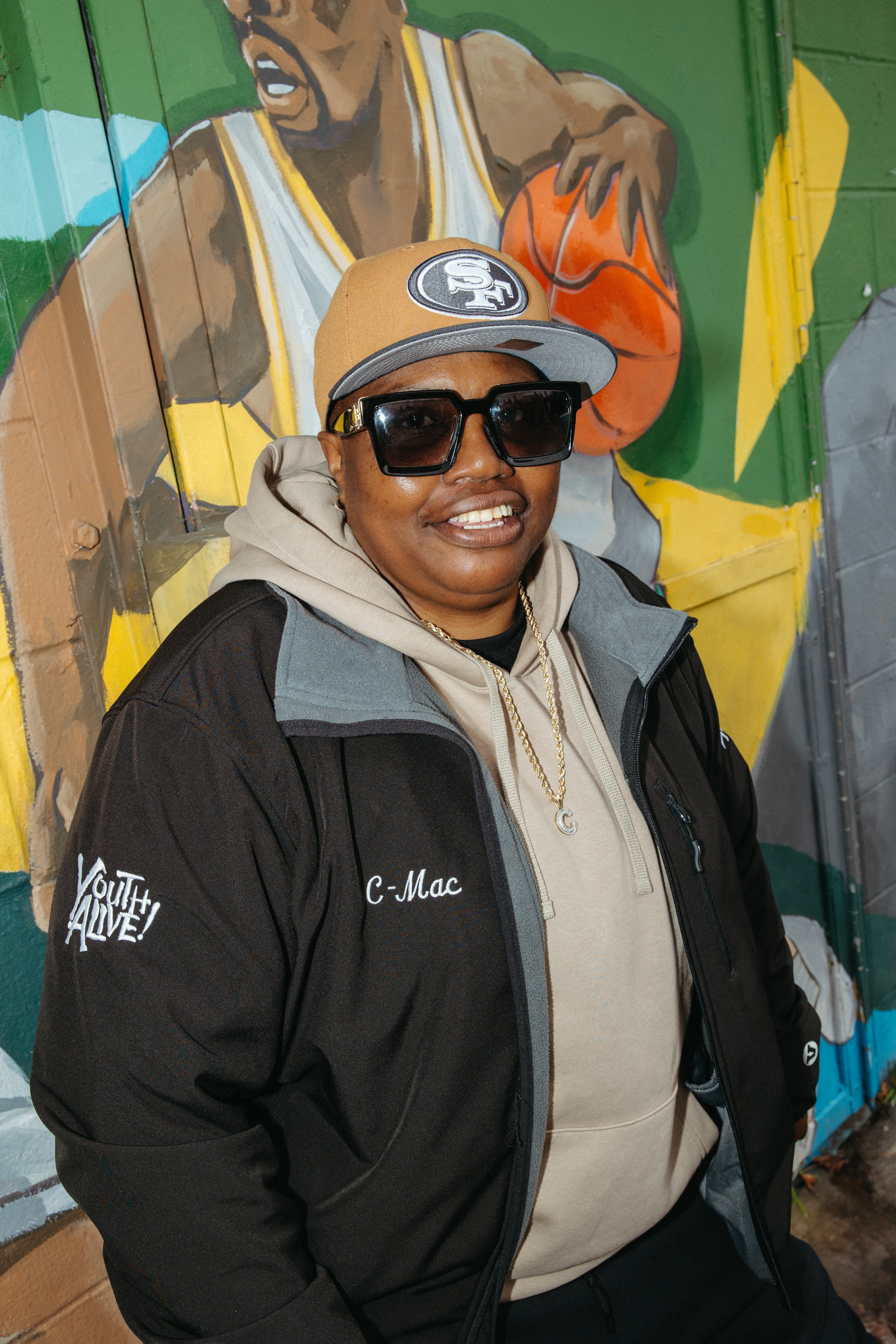Carla Ashford
Violence Interrupter
cashford@youthalive.org | (510) 681-6237
If you’re lucky some afternoon, you might see YA! Violence Interrupter Carla Ashford tooling around the Lower Bottoms on her 3-wheeled Can-Am. As an Interrupter, Carla spends her days and sometimes her nights on the streets of her long-time haunt: West Oakland. When violence flares or threatens, Carla uses her deep personal connections and influence to find the right people to talk to, and to get them to listen to her message: imagine a different future.
Though raised in Union City, Carla became a West Oakland fixture at a very young age. Even as a teen, she had respect, and a reputation as a leader. For a time, she exercised her influence on the streets in ways that led to trouble. And she paid a price, in addiction, in prison, in friends and colleagues lost to violence.
But when she got clean and sober, Carla had a realization: if I accomplished all that on drugs and booze, think of who I can be free of those things. It was the late Akil Truso, a pioneer in peer street outreach in Oakland, who recognized in Carla the qualities that make a great peacekeeper and problem solver: vision, the courage to tell it like it is, hard experience overcome, a drive to make things right. That’s the Carla who became a pioneer herself, as the first woman doing street outreach, with Oakland Unite. It’s the Carla who interrupts violence and mentors youth with Youth ALIVE! today. (There are many more woman doing this work now.) “This is my purpose,” she says. “Not anybody can do it.”
Carla is never afraid to show emotion, or talk about emotions. The way she sees it, too much of the violence on our streets is the result of hurt feeling, of swelling emotions that cloud a person’s thinking. She wants them to pause for a minute, to think about what they are about to do, about why, about the load of grief a bullet carries. “You’ve had your own losses,” she tells people beefing on the streets. “You’ve seen the pain it causes.” To others she meets who are struggling with addiction, she gives encouragement in her own example. “We’re strong.” she says. “We thought we were strong when we were running the streets. But just imagine yourself clean! We are awesome!”
